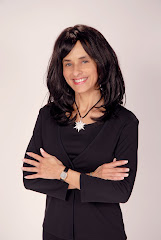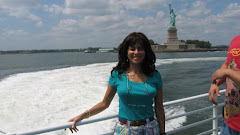

Lessons from 2008 Olympics Opening Ceremony
When I traveled to China two years ago, I got a glimpse of the unique new national stadium, which was already known as the “birds nest”. I had no idea that just months later, one of the most fantastic spectacles in the history of the world would take place there. During the opening ceremony of the 2008 Olympics, China shouted to the world that it is a formidable world power boldly to be reckoned with.
The ceremony began at 8 p.m. on the eighth day of the eighth month of 2008 - auspicious in a country where eight is the luckiest number.
China
Inside the arena, housing an audience of 91,000 attendees, 11,000 athletes, and heads of state from 204 nations, China took center stage on the world stage displaying its artistic, architectural, engineering, and human capital prowess. Before our very eyes, we watched 2,008 (yes 2008 was woven throughout) drummers beat out a pulsating rhythm with their hands and thousands of thai chi masters moving intricately as one. Later, a huge, translucent globe emerged from the stadium floor, and acrobats floated magically around it to the accompaniment of the games' theme song, "One World, One Dream." A tribute to China's invention of movable type morphed into a vast sea of undulating cubic shapes, simulating a giant computer keyboard—and had me spellbound!
It ended sensationally, when China's first Olympic superstar, former triple gymnastics gold medalist Li Ning, was hoisted by wires to the top of the stadium, circled the circumference as though he were spacewalking and then touched the torch to a thin pipe, setting off a spiral of flame to ignite the mammoth, scroll-shaped cauldron overlooking Beijing. What was most impressive was the precision with which thousands of performers perfectly delivered synchronized movements without missing a beat to the live audience and more than 4 billion TV viewers worldwide.
This year, the traditional parade of nations had a twist. The nations marched not in the traditional alphabetical order but in a sequence based on the number of strokes it takes to write their names in Chinese. The exceptions were Greece, birthplace of the Olympics, which was given its traditional place at the start, and the Chinese team, which lined up last. The climax of the parade was the entry of the 639-strong Chinese team. Its flag-bearer was basketball idol Yao Ming, accompanied by 9-year-old schoolboy Lin Hao, a survivor of May's devastating earthquake in Sichuan province. A chanting, flag-waving crowd gave a thunderous welcome, and erupted again a few moments later when President Hu Jintao declared the games open.
The World
The headlines of many articles about the Olympics claim the Olympics is always about politics. I say the Olympics tell the story about the state of the world. As the Olympic parade unfolded, I was transfixed as I watched the procession of athletes from 204 countries. All here for this event that represents the pinnacle of their career.
Some of my observations follow:
--Although North Korea and South Korea marched as a united front during the last two Olympics Parades, this year they did not march together; they were separated by several countries Although the two countries held meetings to discuss the possibility of sending a united team to the 2008 Olympics, the proposal failed, due to disagreements between the two NOCs on the proportion of athletes from the two countries within the team.
--Taiwan marched as China Taipei. They marched right behind China.
--Israel received lots of cheers. Palestine received lots of cheers.
--The group from Afghanistan was all male. There are reports that the only female athlete on their team is missing in action. She disappeared while the athletes were training in Scandinavia. She received numerous death threats for having the audacity to compete. It is believed that she defected.
--More (and some new) countries marched for the first time: Serbia, Montenegro, Tuvalu (a Polynesian island nation located in the Pacific Ocean midway between Hawaii and Australia), Kosovo, and The Marshall Islands.
--On July 24, 2008, the International Olympic Committee (IOC) banned Iraq from competing in the 2008 Olympic Summer Games due to "political interference by the government in sports." On July 29, the IOC reversed its decision and decided to allow the nation to compete after a pledge by Iraq to ensure "the independence of its national Olympics panel" by instituting fair elections before the end of November. Until then, Iraq's Olympic Organisation will be run by "an interim committee proposed by its national sports federations and approved by the IOC."
--Brunei was disqualified because they failed to register either of their athletes
--Paraguay is the only country that has two different sides to its national flag
--Racial inequality against people of color is alive and well. Although more than half of Brazil is Black (half the slave trade went to Brazil) and it has world's second-largest Black population, behind Nigeria's, the large Brazilian contingency looked White. It always amazes me that often when Brazil showcases their people in the media, it is usually the White citizens that are featured. Brazil’s initiatives to make progress in realizing racial equality is slow and anemic. I also noticed there was a large block of Cubans. The entire front line, forming a semi-circle around the athletes, were older (50s and 60s), white males. They seemed to be hiding the fact that most of their Olympic athletes are Black while (scholars report that) 60-70% of Cubans are Black or mixed with Black (1/2 Black).
--Some nations actively recruit professional athletes to become citizens in their countries so they can win medals. For them. Bahrain, for example, pays athletes handsomely to move there and represent them.
Despite the fact that it was extremely hot and humid inside the stadium, the athletes and hosts kept moving, and they sported heavy, multi-layered traditional attire/costumes.
As I watched the 2008 Olympics opening ceremony, I was proud of China and proud to be a citizen of the world. I kept thinking of the event slogan: One world, one dream,
I realize I don't think I will make a good sports fan, because I will be rooting for everyone!






.jpg)
.jpg)




No comments:
Post a Comment